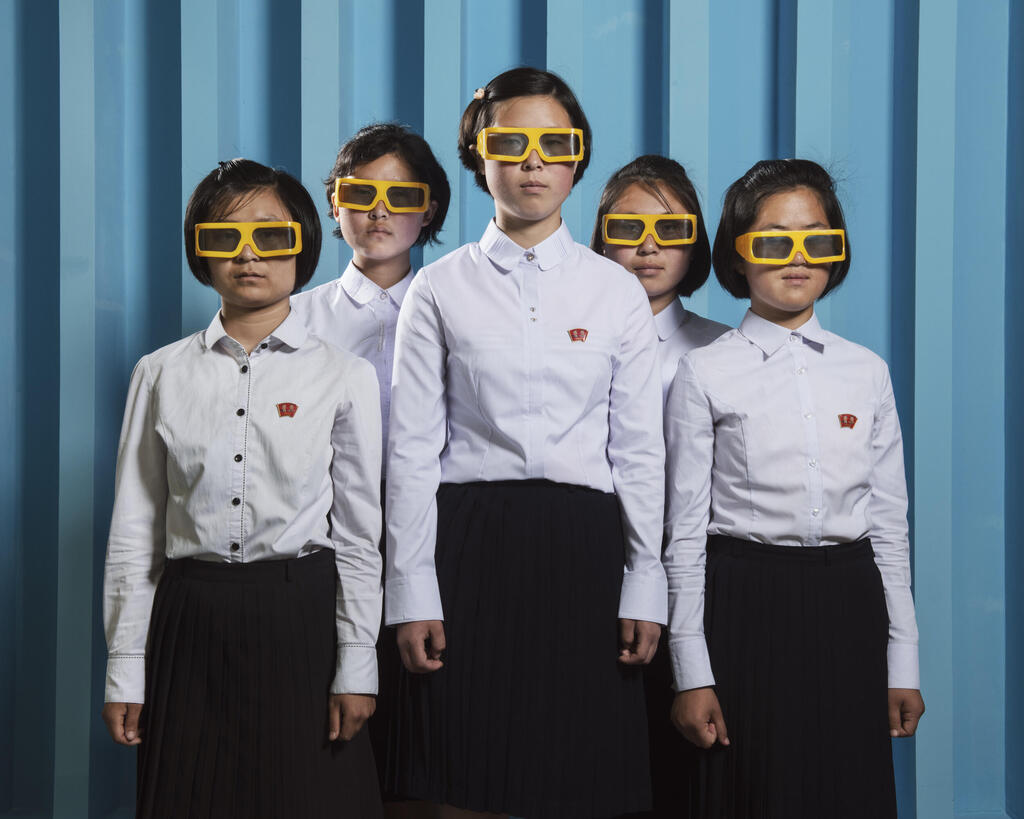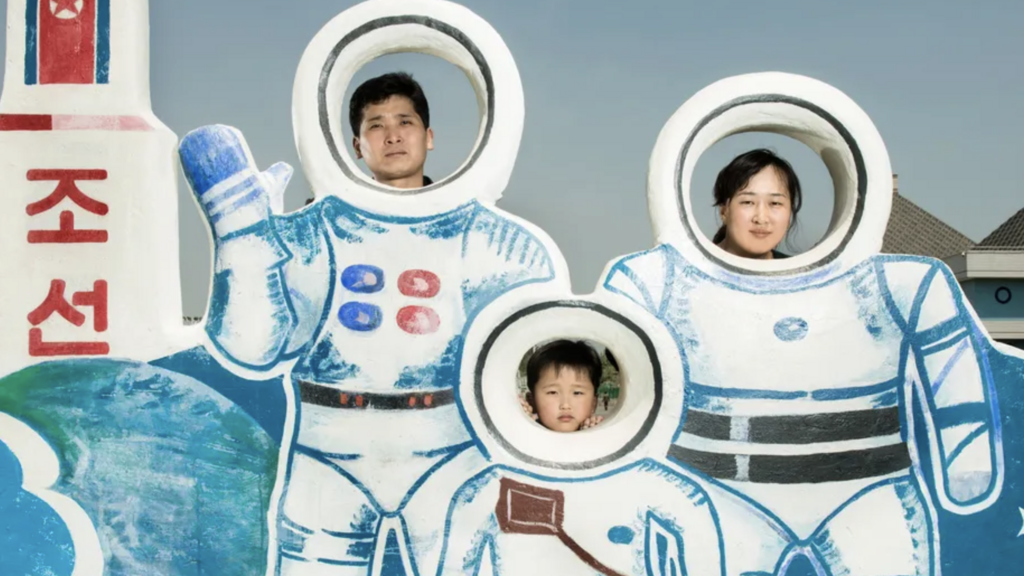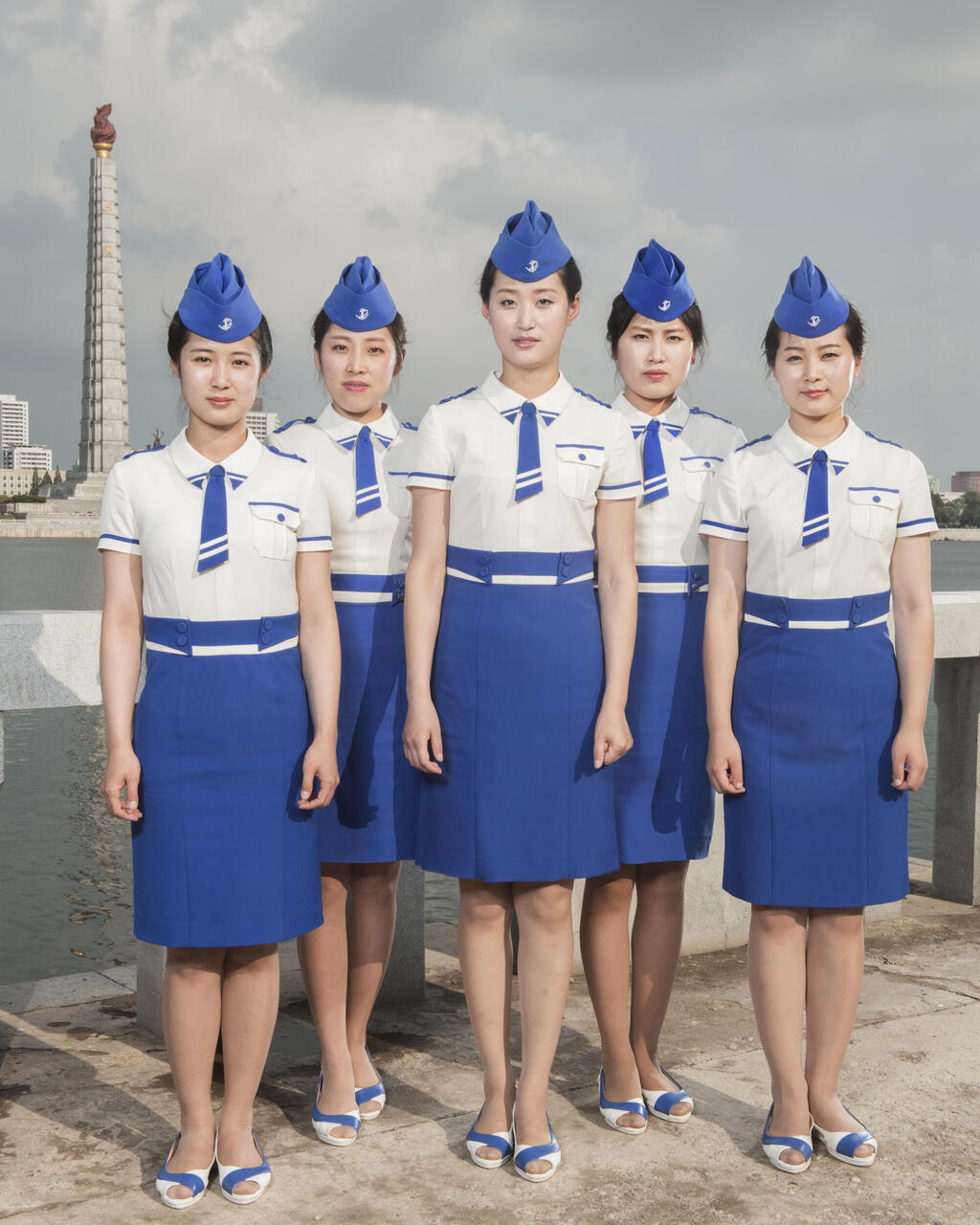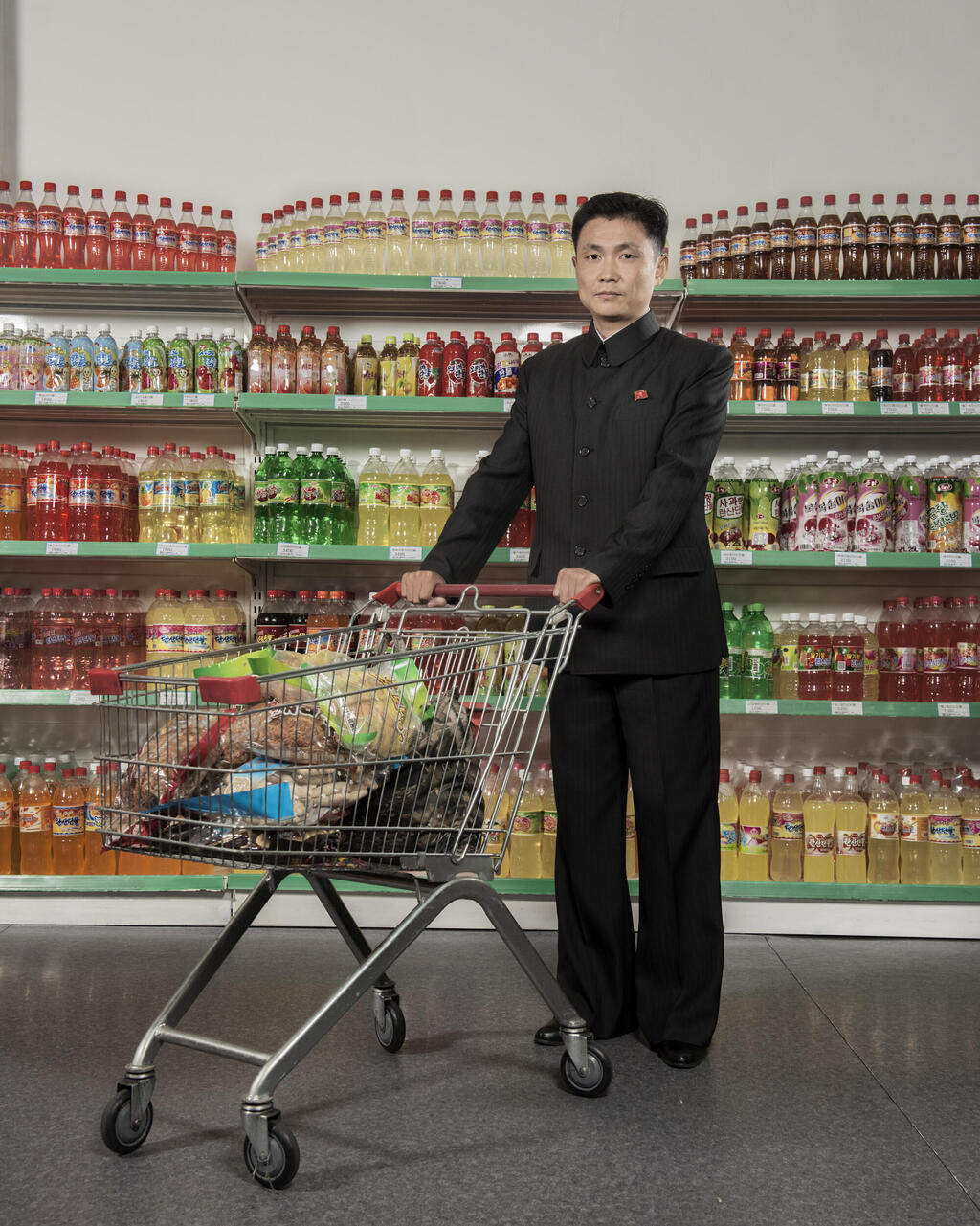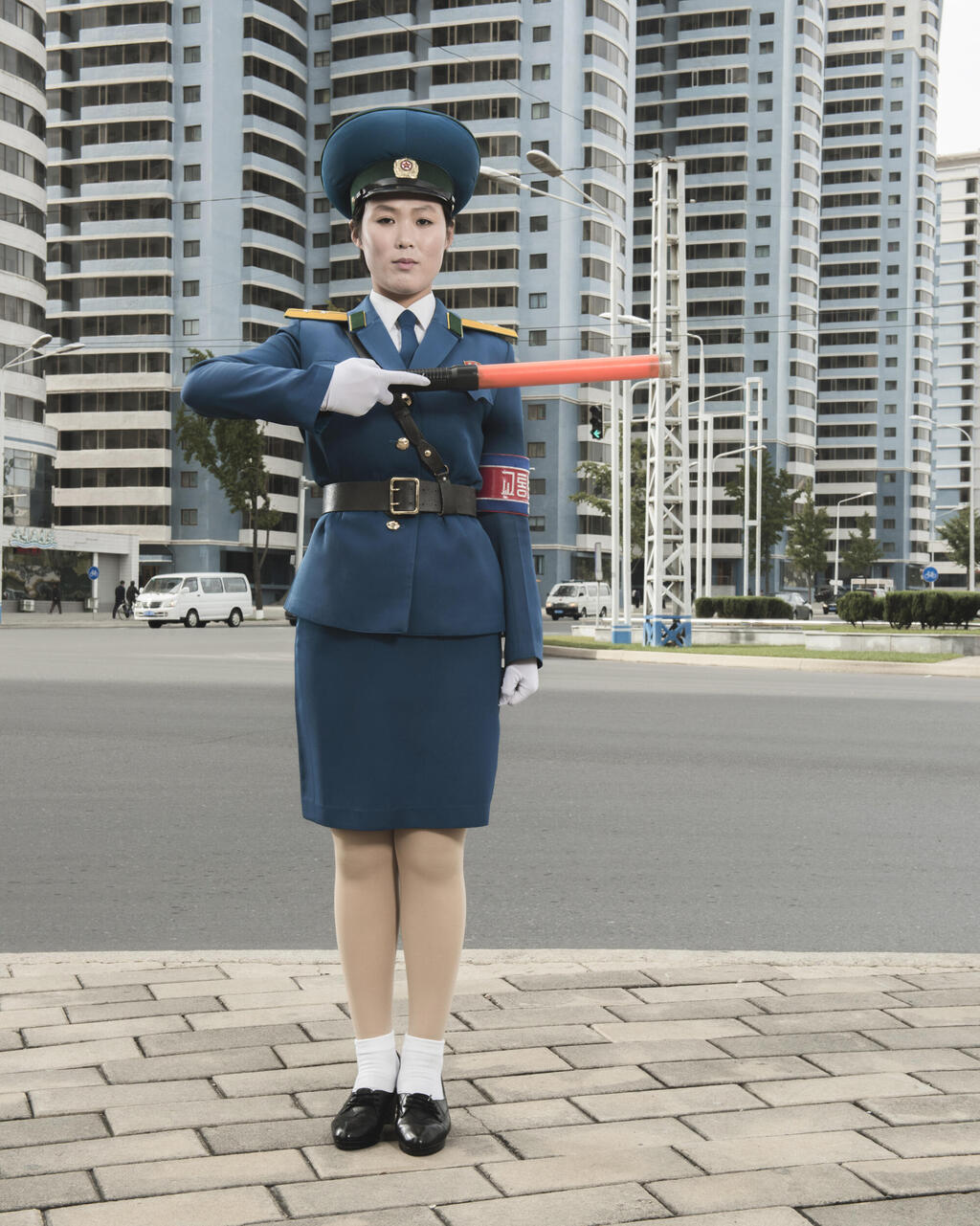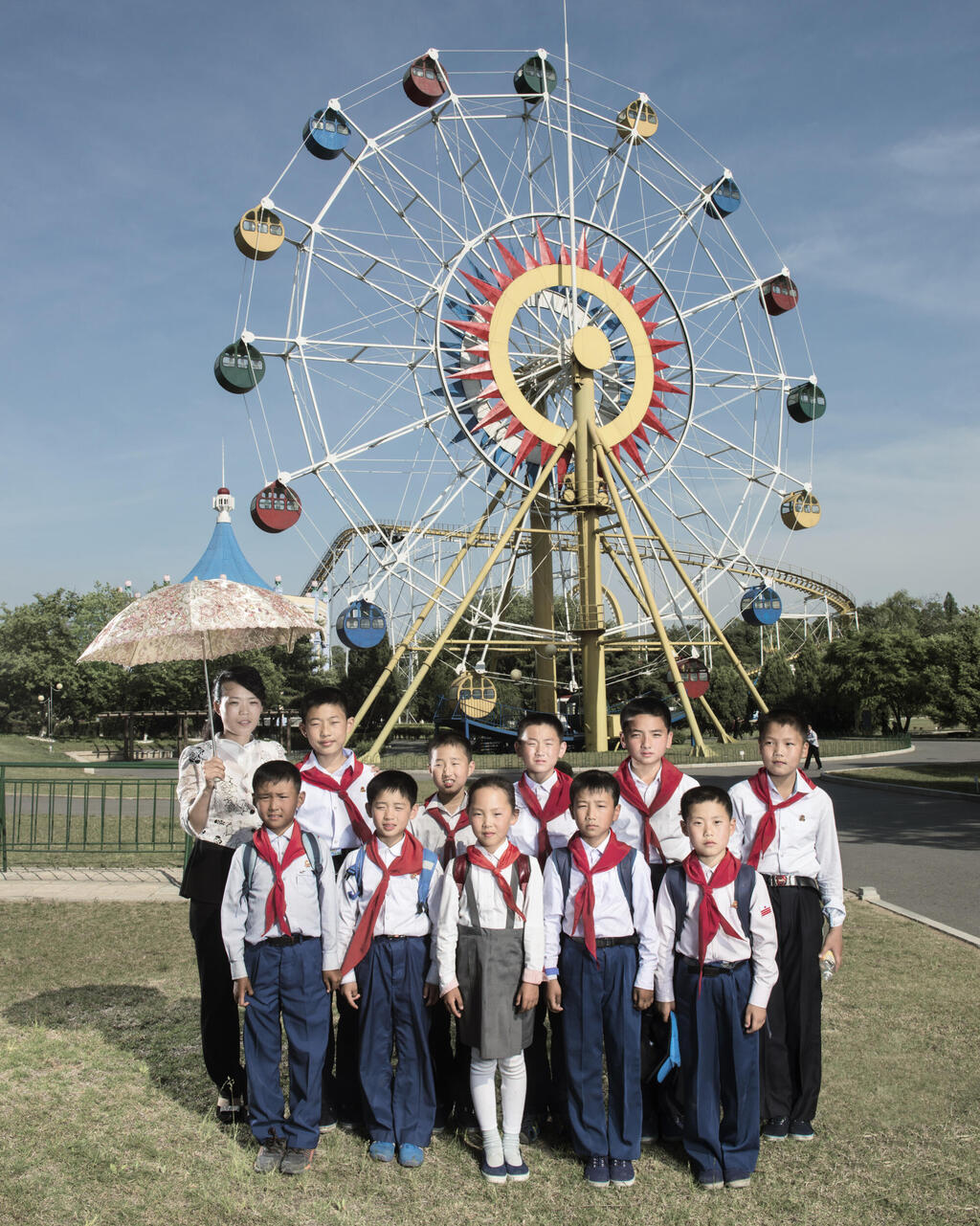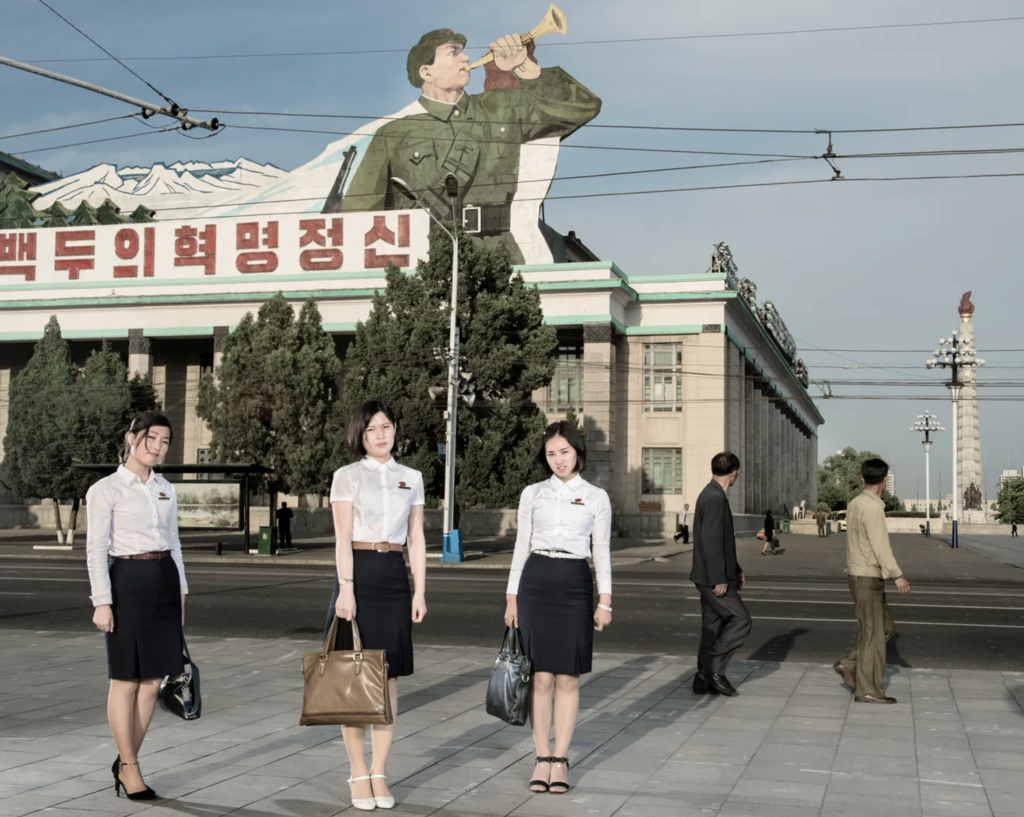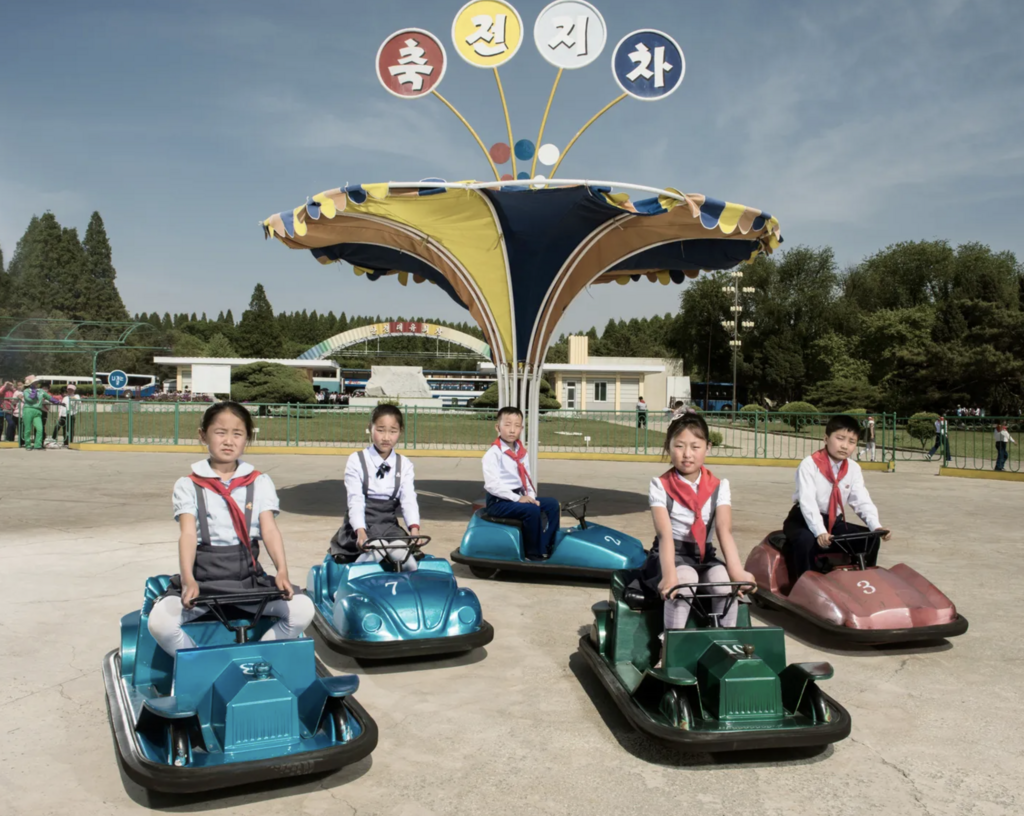"Not being able to walk about freely is something I knew in advance. Landing in North Korea means being picked up at the Airport and constantly escorting you wherever you go up until the moment you board the flight back home," says French photographer Stephan Gladieu in a special interview with Ynet.
"They fully dictate your schedule from the moment you land, so there's no way of taking pictures of anything they don't want you to. Still, I was able to conjure up the space needed to present North Korea from my point of view."
Over a span of four years, from 2016 to 2020, he embarked on three separate journeys to capture images of the inhabitants of North Korea. His aim diverged from the norm, shifting focus from the well-known dynasty and historical events to the lesser-known lives of the 25 million individuals residing under the regime. Gladieu is set to showcase his expedition in the PHOTO IS:REAL exhibition in Tel Aviv.
Gladieu's photographic inclinations first came about when he was 18 and taking a year off college. He decided to take a friend's camera and fly to Romania, at the time a nation under the clutches of despot Nicolae Ceaușescu, technically known as "President of the Socialist Republic of Romania".
"I presented myself as a student and was able to take 17 days worth of pictures before being apprehended," he says. "I came back with my first publicly showcased works that caused a massive uproar, so my photography career began with a bang." Among other places, his exploits took him to Kosovo, the Afghanistan civil war (where he was staring down an execution) and of course Israel.
"I was a wayward teenager, and telling me something was out of bounds wasn't a good idea, so I was attracted to forbidden places. That's how I ended up in Afghanistan during the civil war. We were 26 photographers and we were all arrested and sentenced to death. Luckily for me, I was the only one who made it out alive. I see myself as a documentary photographer. I want to bring out the story, and Afghanistan had a story to tell. I saw people being hanged in the street and the Sharia regime taking over the country.
"I had the option of returning to Paris and crawl to bed, or I could tell myself it's time to build something, so I ended up staying two years in Afghanistan. I find the label 'wartime photographer' to be somewhat pretentious. I came there to document what's going on, but this isn't my country nor is it my war, so all I had was compassion for people who are suffering and try to bring their story forward, all while trying to survive. One might say I was trying to prove to my father that I'm not the piece of s*it like he always told me, and that I deserve respect, plus I was well compensated for it."
Can you empathize with the aggressor?
"War means suffering, so I'm not the one who decides who are the good guys and who are the bad guys. I don't pick a side. It's never black and white. For example, when it comes to the Russia-Ukraine war, it's pretty obvious Russia is the aggressor, but I don't think every Russian soldier fighting along the border to a bad person. I go for the humane angle and trying to tell the story of those suffering on both sides. I try to avoid politics and I don't care if you're Muslim, Hindu, black, white, yellow or gay. I only care if we can spend time together and share experiences with each other."
Seeking dictatorial approval
Visiting North Korea is something Gladieu has been contemplating for a long time. His first request to visit, 15 years ago, was declined. "Back in 2016, a friend managed to secure a meeting for me with a North Korean official where I proposed a project focusing on portraits of North Korean society. He had an open mind about it and gave me the option of conducting my first visit."
Did they let you in so you could showcase the regime's benevolent side?
"Ultimately, everybody just wants to be understood. Even serial killers. North Korea claim they're building a perfect state. I'm not judging, but rather focused on and seeing for myself and understanding, so if they're giving me the option of seeing for myself, I'll take it. I'm not the one to say 'You're evil so I won't do it'. From my many years doing this, I've come to the conclusion there's no objectivity in any newspaper. Each one makes a choice, and it comes down to which image to display and at what size and framing, and that's a choice a person makes."
What is your modus operandi?
"While I love documenting, I also enjoy straddling the line between real and staged, and have decided to make a series of iconic portraits that mixes the documentary and the esthetic, but you are in fact entirely dependent on your hosts. There's no map, road signs and you have no idea where they're taking you. I'd show up, choose the background, place a couple of tripods and wait for people to walk by, and when I saw something of interest, I'd ask my official escort to ask them if they'd be willing to have their picture taken.
"They took me to a school, hospital, factory and amusement park. The fact I was stationary and waited for people to come to me was helpful. It means the subjects were also stationary and therefor calm. It was clear those being photographed and myself had nothing in common and I knew they couldn't comprehend the symbolism of what I was trying to do. I never lied to my escorts about my intent and my method, and even though the whole thing was monitored, I felt I was able to create my personal space from which I could do my work."
What do you think of North Korea?
"I'm French. I'm a democratic republican, and there's no way I'd be able to live like that or accept their ideology. Still, just because I don't agree with them doesn't mean I wasn't happy for the opportunity to present the people of this country to the world. I was their guest and I didn't try to pass judgement or tell them what they should do. There's no other place like it in the world. North Korea has always been isolated. People there have no sense of critical thinking because this is all they've ever known."


